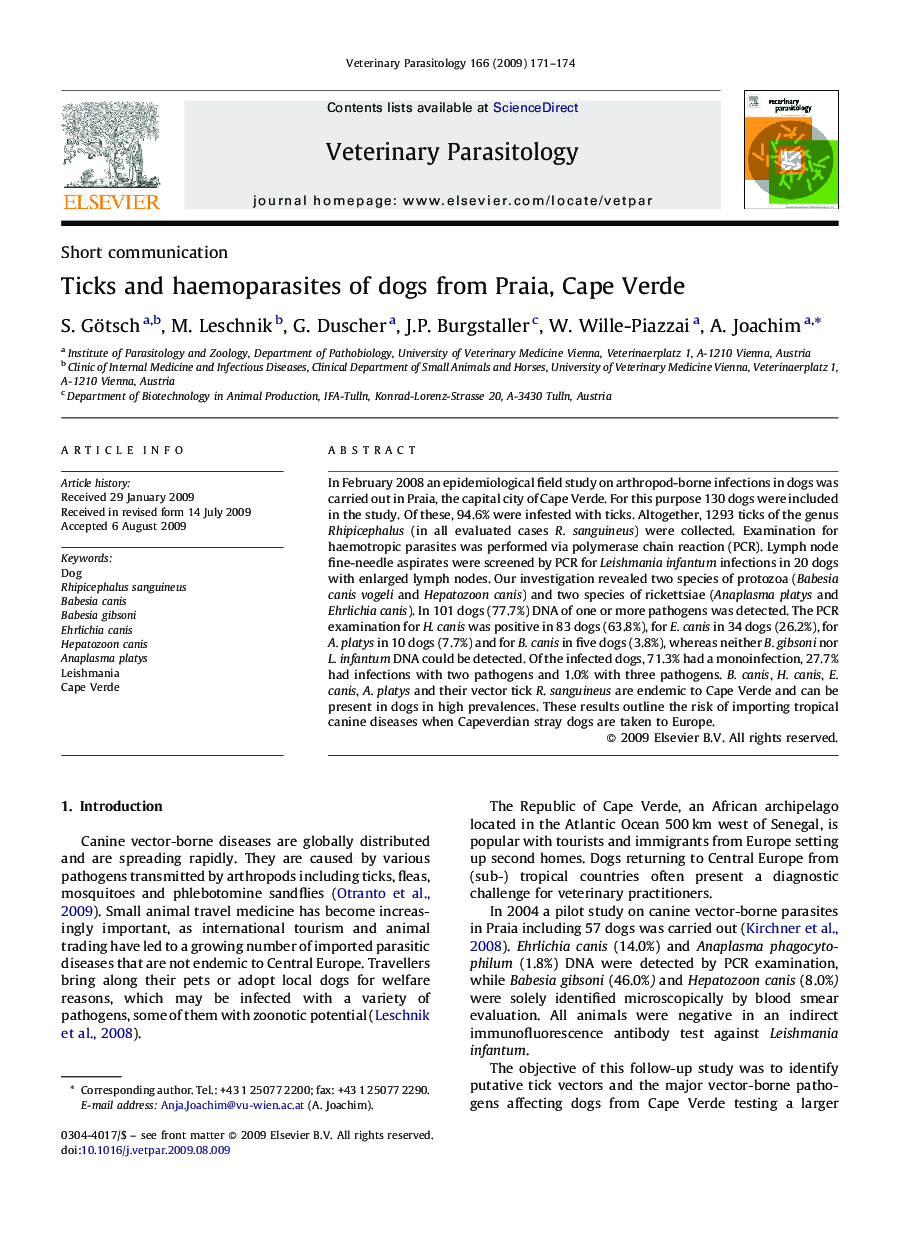| Article ID | Journal | Published Year | Pages | File Type |
|---|---|---|---|---|
| 2471042 | Veterinary Parasitology | 2009 | 4 Pages |
Abstract
In February 2008 an epidemiological field study on arthropod-borne infections in dogs was carried out in Praia, the capital city of Cape Verde. For this purpose 130 dogs were included in the study. Of these, 94.6% were infested with ticks. Altogether, 1293 ticks of the genus Rhipicephalus (in all evaluated cases R. sanguineus) were collected. Examination for haemotropic parasites was performed via polymerase chain reaction (PCR). Lymph node fine-needle aspirates were screened by PCR for Leishmania infantum infections in 20 dogs with enlarged lymph nodes. Our investigation revealed two species of protozoa (Babesia canis vogeli and Hepatozoon canis) and two species of rickettsiae (Anaplasma platys and Ehrlichia canis). In 101 dogs (77.7%) DNA of one or more pathogens was detected. The PCR examination for H. canis was positive in 83 dogs (63.8%), for E. canis in 34 dogs (26.2%), for A. platys in 10 dogs (7.7%) and for B. canis in five dogs (3.8%), whereas neither B. gibsoni nor L. infantum DNA could be detected. Of the infected dogs, 71.3% had a monoinfection, 27.7% had infections with two pathogens and 1.0% with three pathogens. B. canis, H. canis, E. canis, A. platys and their vector tick R. sanguineus are endemic to Cape Verde and can be present in dogs in high prevalences. These results outline the risk of importing tropical canine diseases when Capeverdian stray dogs are taken to Europe.
Keywords
Related Topics
Life Sciences
Agricultural and Biological Sciences
Animal Science and Zoology
Authors
S. Götsch, M. Leschnik, G. Duscher, J.P. Burgstaller, W. Wille-Piazzai, A. Joachim,
